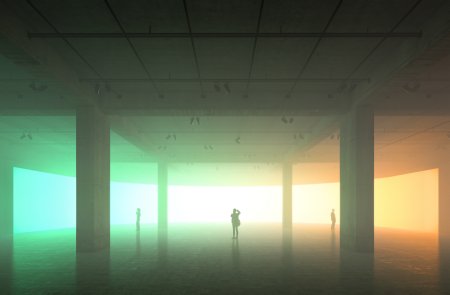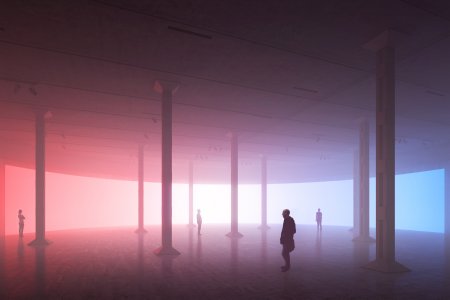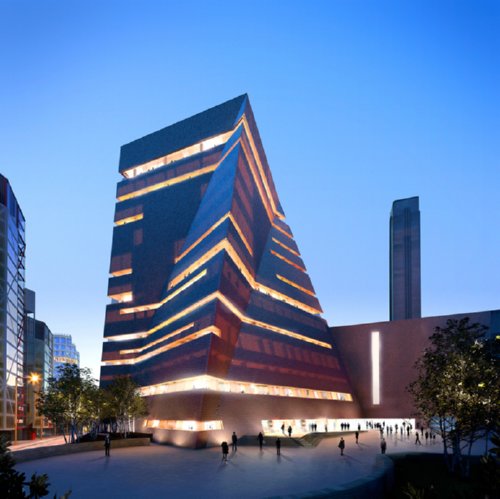The initialisation phase of the new development of Tate Modern is scheduled to open in the summer of 2012 to coincide with the Olympic Games festival.
The Cultural Olympiad is the largest cultural celebration in the history of modern Olympic and Paralympic movements, covering the four years leading up to the 2012 games.
The celebration is designed to give everyone in the UK a chance to be part of London 2012, inspiring creativity across all cultural forms and the opening of the Tate Modern extension will complement this considerably. Director of Cultural Olympiad, Ruth Mackenzie said: “It’s very exciting that the first phase of the Tate Modern development will open in coincidence with the festival. The involvement of the world’s most visited modern art gallery will provide wonderful inspiration to artists from all over the world and help London to retain its international pre eminence in the visual arts.”
The redevelopment will include an eleven-storey extension, which will house display and exhibition spaces, performance spaces, retail, landscaping and educational learning facilities, along with external lighting, servicing and vehicle parking. The first phase includes the opening of the former power station’s spectacular ‘Oil Tanks’- a group of industrial chambers which have been left unused since the power station was decommissioned. The chambers will be transformed into exciting new art spaces, which promise to be some of the most prolific in the world. The enormous 30m x 7m circular spaces will double up as innovative social learning areas that can be used for full back of house activities incorporating live performance, film and sound. These mediums have become essential strands of artistic practice and whilst artists are continuing to embrace new technologies, so too are the Tate Modern development design team. It is their desire to see clear congruence between shifts in artistic attitude and construction evolution, as this will add unity to the development as a finished piece.
It is hoped that the Oil Tank spaces will allow the public to explore the history of the arts practice through the latter half of the twentieth century and see the work being developed by artists in the present day. Director at Tate Modern, Nicholas Serota said: “The Tate is responding to changing forms of art, in wider consideration of the changing expectations of visitors in the twenty-first century.”
The second phase of redevelopment is due to be completed in 2016 and will provide further floors of galleries for the museum. On completion, the project will have enhanced the current Tate Modern, with 70% additional display space free to exhibit seminal works from Tate’s collection and arts programme. The design of the space is geared to reflect the emerging global perspective being employed by artists from Latin America, the Middle East, Asia and Africa, using specific aesthetic design materials to express and emulate artistic habits and practices from the individual cultural contexts of the works being displayed. This will give the project cohesion and symmetry and help visitors to make both visual and psychological connections between the physical display space and the abstract nature of the art on show.
The project, costing around £215million, has been part funded by the Central Government, the London Development Agency and the Private Sector, with additional anonymous donations raising 70% of the project. Nicholas Serota stated that he was “immensely grateful to all the generous donors for their support, which will bring developers within touching distance of their funding target for one of the largest ever campaigns in the cultural field.” The redevelopment of the Tate Modern is a significant expansion for the Gallery’s already well-established cultural prestige and will bring a fresh and exciting edge to the capital in its pivotal Olympic year.
SeftonHornWinch
SeftonHornWinch are food service consultants operating on an international basis, with offices in Kent and Dubai. Working mainly in the high end business and industry department, their principal business is in high quality hotels and high end restaurants and recently completed projects include the Mandarin Oriental Hyde Park Hotel and the kitchens at Buckingham Palace.
SeftonHornWinch have been appointed to complete all of the food design for the Tate Modern project. In the original building (TM1) they are redeveloping the existing cafe on the ground floor and developing a central production kitchen, which will have the capacity to provide up to 10,000 sandwiches per day. In the extension (TM2) they will cater for seven of the eleven floors, including coffee shops and a 5-star restaurant, along with bar and function facilities.
Gareth Sefton said: “This has been a fantastic project to work on and we are very pleased with the progress being made. We are specialists in high end and visual kitchens and we bring our skill and imagination to every project we work on. People come to us because they think we are better than everyone else – we are respected within our industry and our work is envied and copied by our competitors.”







